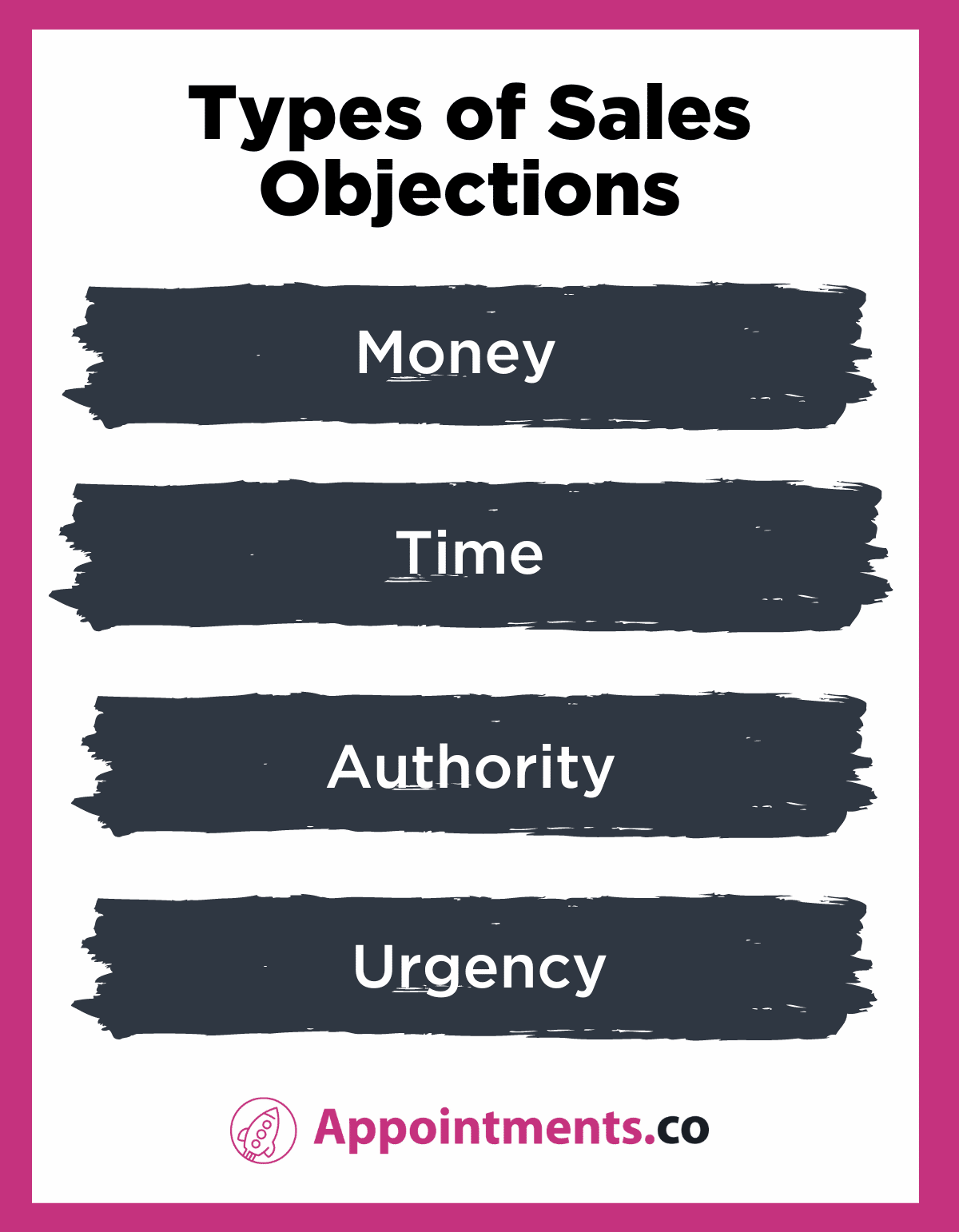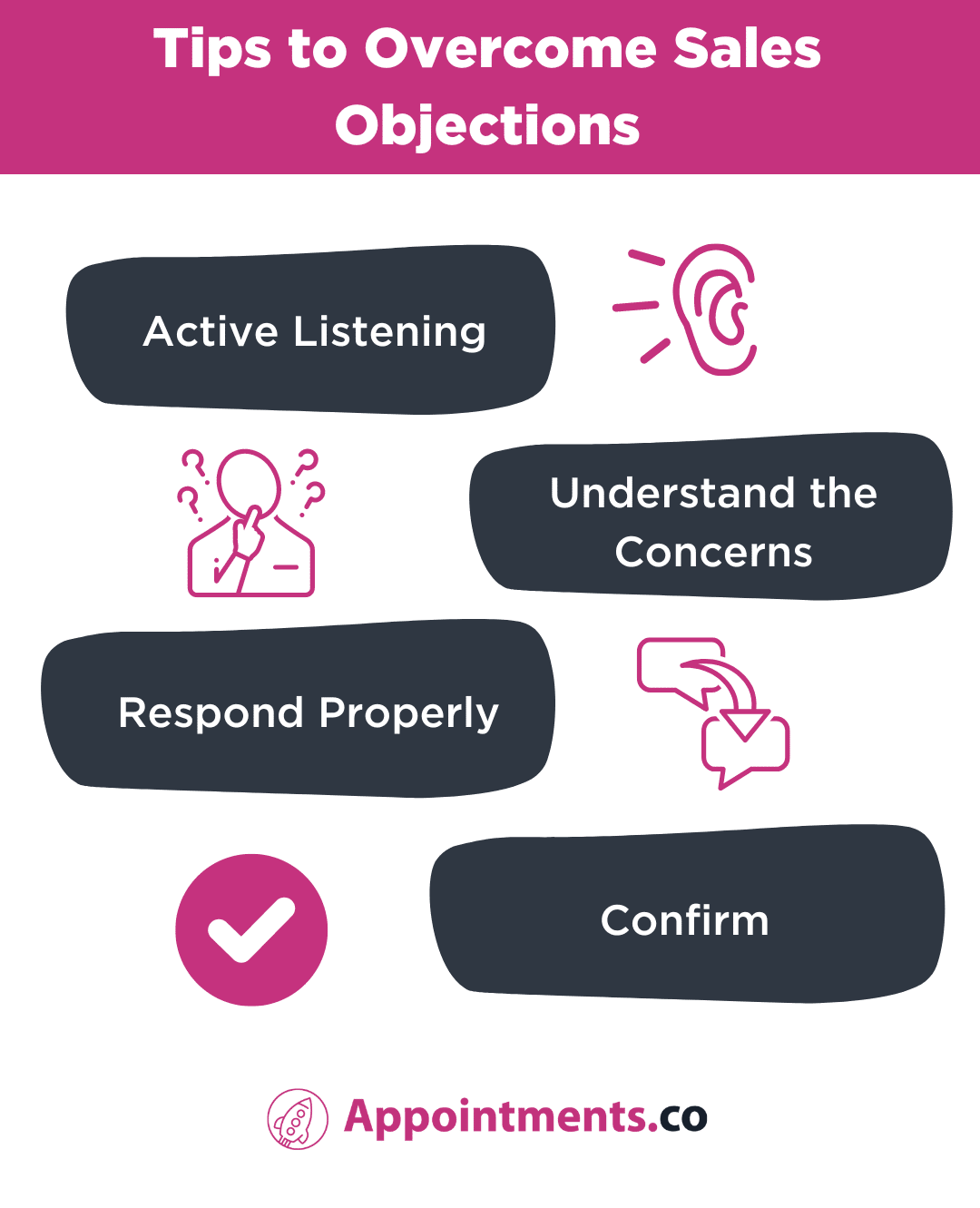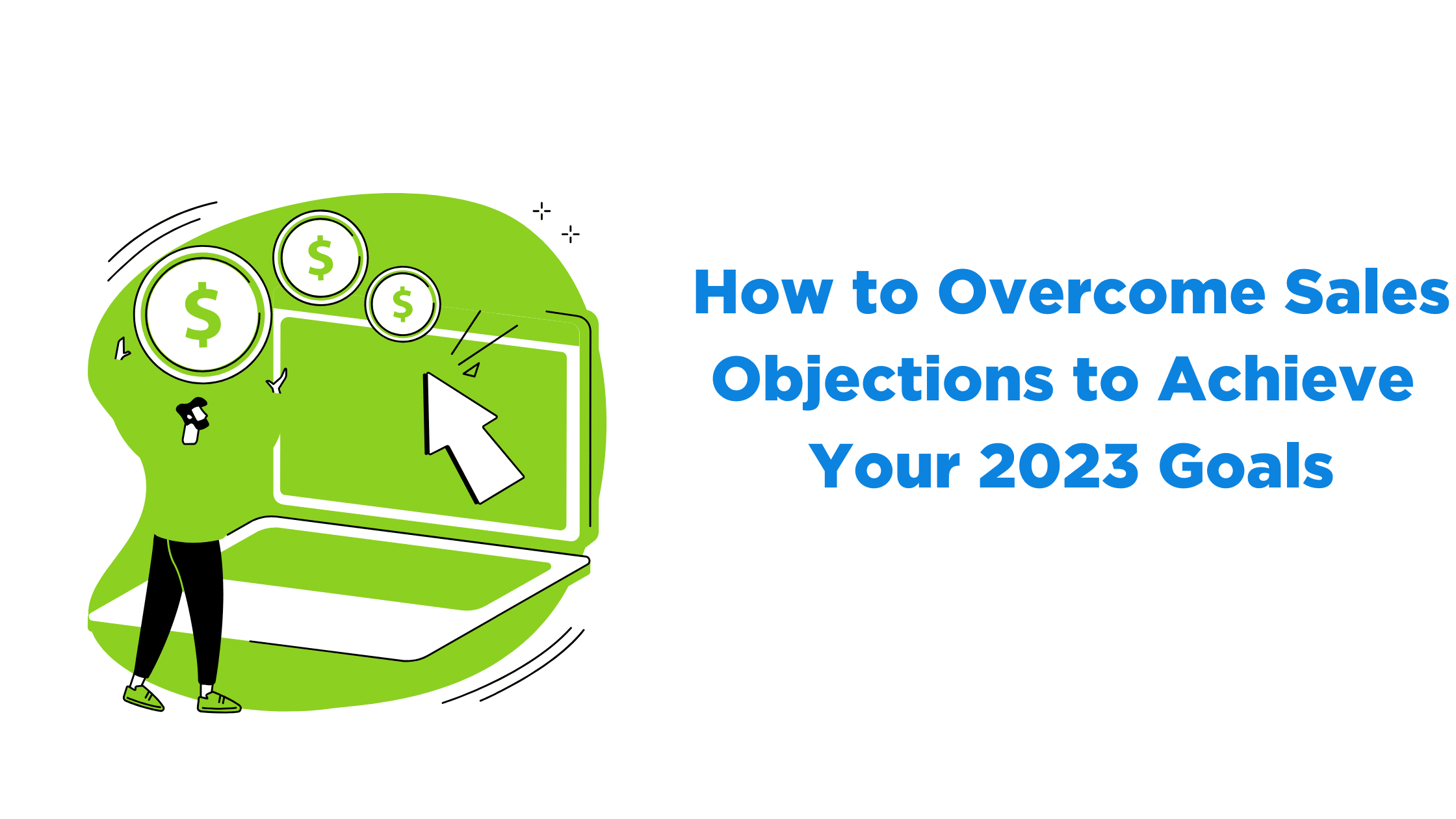Every business professional must consider how they can over sales objectives to slay the hurdles on their sales journey. As a marketer, you can only sometimes expect a positive response on the first go. You might also be faced with equal numbers of rejections. Sometimes, nobody may respond positively. This is not the end. You can still handle those objections effectively and convert them into qualified customers.
Research says, knowing how to overcome sales objections can boost your sales success rate to 64%. If you want to learn such a worthy tactic to achieve your business goals, keep reading this article.
Quick Links:
- How to Handle Sales Objections and Why
- Types of Sales Objections
- Tips to Overcome Sales Objections
- FAQs
- Final Thoughts
- Related Reads
How to Handle Sales Objections and Why
You need not remove every negative response from your contact list. By carefully handling those responses, you could urge their curiosity about your service. Surprisingly, they might also turn into repeat buyers or loyal customers. But, all these depend on the effectiveness of your approach. You can’t just keep on spamming them after their objections. Instead, you must keenly understand their reason for the objection and deal with it with compassion. Handling objections, if done right, will bring in magical results. On the other hand, it can completely put off your receivers as well.
Objection handling is a challenging and significant process in the sales cycle to move the prospect further down in the sales pipeline. You can discover different ways of handling deals objections because each customer has a unique way of objecting. You should be prepared in solving these concerns. This blog will elaborate on overcoming sales objections and tips for effectively handling sales objections. Let’s get started right away!
The Types of Sales Objections
Before handling objections, you must categorize the responses based on the key points in the objections. Here are a few categories, understanding which you can optimize your approach to handling objections.

1. Money
- “I don’t have the budget right now.”
- “It is too expensive.”
- “I can find a cheaper alternative.”
If you are in sales, you may be tired of hearing the above responses, right? Regardless of the target audience, pricing is the most common sales objection. Lack of cash could be true, but it could really be a lack of money or a brush-off, or the lead or prospect might think that your product or service is not good enough to justify the cost.
How to Overcome This Objection:
When the lead hesitates about the price, most sales executives immediately offer a lower price. This will question your product value if you lower the price. Instead, try to analyze the real reasons behind the objection. Most of their reasons will usually be issued more vaguely than anything concrete. You need to offer facts and creative value of your product or service and demonstrate how the product can solve the customer’s problem.
Added to that, to create reassurance to the prospect, you can explain the cost of the product, the return on investment, and other related benefits. Make your product feel crucial; then the price will matter less.
2. Time
You’ve likely heard this or something like:
- “Now is not a good time.”
- “Contact me later when we have the budget.”
In this scenario, you must make it so compelling for them to buy — right now — that they feel as if they’ll genuinely regret passing up the opportunity.
How to Overcome This Objection :
Simplify your sales process and offer them attractive terms that your product or service is available only for a specific period. They will miss out on a great opportunity. Before jumping into the conversation, clarify whether it is the right time to call. If it’s a bad time, find a better time to call.
3. Authority
Trust is a critical value in a business relationship. People do business with companies they know and trust. If your company doesn’t have a brand image, prospects will be doubtful about having a business conversation with you.
If this is the case, you’ll need to back up your sales pitch with social proof. Mention how you’ve helped a similar company and provide a case study to support your claims.
If the lack of authority is the sales objection, it’s your job to turn that prospect into a champion of your product or service. Go over the benefits of what you’re selling and emphasize the value it can add in making their job easier if you play your cards right there.
How to Overcome This Objection :
Always respect their position, but consider this objection an opportunity to get other decision-makers in the room. Identify any underlying concern and address that specific issue. Then, agree to wait for a phone call, keep the process moving by setting up a joint meeting with both parties or transition the sale to the final decision-maker altogether.
4. Urgency
Another common sales objection by the prospect is that they don’t need your offer at that particular time. Try to understand why they are delaying the offer. The goal here is to identify the right time. This will allow you to give the prospect more information about the product.
How to Overcome This Objection:
Ask open-ended questions to evaluate the needs of the prospects and whether they will utilize the product or not. Evaluate what other competing priorities are there. Schedule an appointment for later to understand more about the issue.
Tips to Overcome Sales Objections

1. Active Listening
When you connect with a prospect, do not respond immediately; take time, listen entirely to their objections, and give them time to speak. Once you have listened to their objections, you can anticipate them before they occur. Try to resist this temptation of jumping to respond or cutting them off defensively. Stay actively focused and listen fully to what the buyer is saying their concerns, and the business problem you’re helping to solve.
Make sure you make the prospects feel that you’re genuinely hearing out their concerns and it is in their best interest to let you help them. This increases the chances of closing the deal once you’ve handed in the sales objection.
2. Understand the Concerns
Understand people’s concerns and try to avoid misinterpretation. You’ll need to ask more questions to evaluate all the objections before you are ready to respond effectively. Many objections hide underlying issues the buyer can’t or isn’t prepared to articulate. Often, the real problem isn’t what the buyer first tells you. It’s your job to understand the objection’s heart—fully understand it and its trustworthy source. To do this, ask permission from the prospect to understand the issue. From there, restate the concern as you know it. Sometimes when you repeat the objection, the buyer sees the problem more fully, and you get closer to the trustworthy source of the objection.
Even after the prospect confirms you understand perfectly, ask further questions for their questions for clarification until the funnel moves forward.
3. Respond Properly
Always acknowledge that your prospect’s concerns are valid. Please don’t give them even a slight feeling that you are taking their concerns very lightly, which is unlikely for closing a deal. Also, don’t oversell so a prospect feels that you are ad-libbing. This is a very unlikely tactic to create trust. Always keep your responses clear and short. So, after you’ve uncovered all objections, address the most important objection first. Once you work through the most significant barrier to moving forward, other concerns may no longer matter as much to the buyer.
Try to resolve their issue more effectively. You can resolve issues in real-time, and the greater your chance of moving the sale forward. If you need more information to determine a specific concern, you may have to look something up or investigate further.
4. Confirm
When responding to prospects’ objections, check if you’ve satisfied all their concerns. Just because they heard what you said, and agreed to your response doesn’t mean they will buy out your offer. Ask if the prospect is happy with your solution and its value.
Don’t force a commitment on your prospects. If you do so, they will accept a solution at the moment, but the object will remain. Restate the objection, and confirm that the prospect will move forward with the deal if you can overcome it.
Don’t waste time overcoming a sales objection that will not take you anywhere because some prospects will never buy. In that case, it’s not an objection. It’s a brush-off. If they don’t have the desired budget, are not fully qualified prospects, or lack the authority, you’re likely wasting your time.
FAQs
1. What is a sales objection?
A sales objection is a question or concern expressed by a lead that makes them hesitant to buy your product or service. There are one or more factors that stop them from moving further in your sales process or making a purchase.
2. How to overcome objections in sales?
First, you need to listen and acknowledge the objection actively. Then, offer additional information or a different perspective to look for a solution. Ask more questions to clarify the objection properly. If ready, make a counteroffer.
3. What are the most common sales objections?
The most common sales objections are:
– Price differences
– Implementation timing
– Quality-related concerns
– A competition offering better value
– Lack of interest or need
4. How can I handle objections about price?
When handling objections about price, you must first highlight the product’s or service’s value and benefits. Try to offer discounts or financing options. Finally, compare your product to competitors in terms of value for money, and reflect on the long-term cost savings.
5. How can I handle sales objections on time?
One common objection from prospects is they lack time to pay attention to your marketing email or call. This can also mean they are less interested in your business. In this case, you can convince them about the benefits they would have by spending their time listening to you. Your unique value proposition might urge them to hear you for a while.
6. How can I handle objections about quality or reliability?
For quality-related objections, you can provide data to support your product. Then, offer a warranty or money-back guarantee. Again, you can share customer testimonials or case studies or directly connect with some of your loyal clients if needed.
Handle Objections Like An Expert!
Objections are significant and a natural process in the sales cycle. If you are a salesperson handling these objections, this should help you tweak your skill and give you commendable ideas and strategies for tackling them. This will improve your sales skills and thereby improve conversions. If you are a growing startup with limited resources, having a sales team can be a lot in your place. Having an on-demand sales team can be your best option. If you are looking for one, reach out to us to perfect your sales journey!
Related Posts:
Illustrations by Storyset



